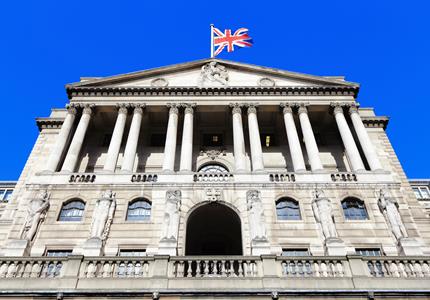

Weekly update - Springtime optimism
This week’s update comes from Jon Pope, director of our cash management team
Vaccine supply is the hot topic at the moment but, even with the recently announced drop in supply over the next month, the Government is still expecting to keep to its published vaccination schedule. The impact of the vaccine is starting to be seen in the various Government statistics. A single dose of either vaccine has been shown to reduce the chance of someone having to be admitted to hospital by more than 80%, which should explain why intensive care admissions have reduced dramatically over the last few weeks.
In publishing the roadmap out of lockdown in the UK, the politicians have had to balance the social and economic benefits of life returning to normal, plus the willingness of the population to respect stringent limitations on their civil liberties at a time of reducing risk.

As it stands children are back at school, ‘stay local’ has replaced ‘stay at home’ and by 17th June the UK should be largely free of all restrictions. If this timetable is adhered to then this will be very positive for the UK economy.
The Bank of England has been quite upbeat in its assessment. It expects a rapid rebound from the second quarter onwards as the vaccination programme allows the country to unlock pent up demand. The UK household savings ratio built up significantly last year, mainly of course because households with stable income did not have as much opportunity to spend. So economists expect that some of the household savings accrued over the last year will be deployed, the key question of course will be how much of this money will be spent? There is some evidence that households are playing down debt but it is reasonable to expect that this will be balanced by a common desire to return to normality.
Looking at the UK, the minutes of the March MPC meeting ‘upside risks’ were mentioned seven times, up from twice in February! This chimes with Andrew Bailey’s recent comment that risks are becoming ‘increasingly two sided’. Markets are starting to think that the window might be closing on the need for negative interest rates.

The MPC ruled them out immediately back in February because of the logistical problems they would create for banks and building societies. Instead, it gave the retail markets six months to prepare so that negative rates could implement if the MPC judges that they are required. Of course if the situation worsens, then the MPC is clear that it will consider negative rates. But if an economic recovery does begin to build from the second quarter of this year then hopefully they will not be needed.
The natural result of both loose monetary policy and large-scale fiscal stimulus in the slightly longer term should be inflation. Central Banks will welcome some inflation and both the US and UK have said that they will tolerate a period of above target inflation before thinking about tightening official interest rates. Markets have perhaps got a bit ahead of themselves in recent weeks in anticipating when Central Banks will switch from providing support to moderating the recovery.
Whilst we do not expect a rate rise in the UK in the short term; improved optimism and the reduced chance of negative rates has helped current yields to firm slightly. We think that this trend might have a little further to go if things continue to go according to plan.
And with clocks going forward and the sun shining, there is definitely much to feel optimistic about!


